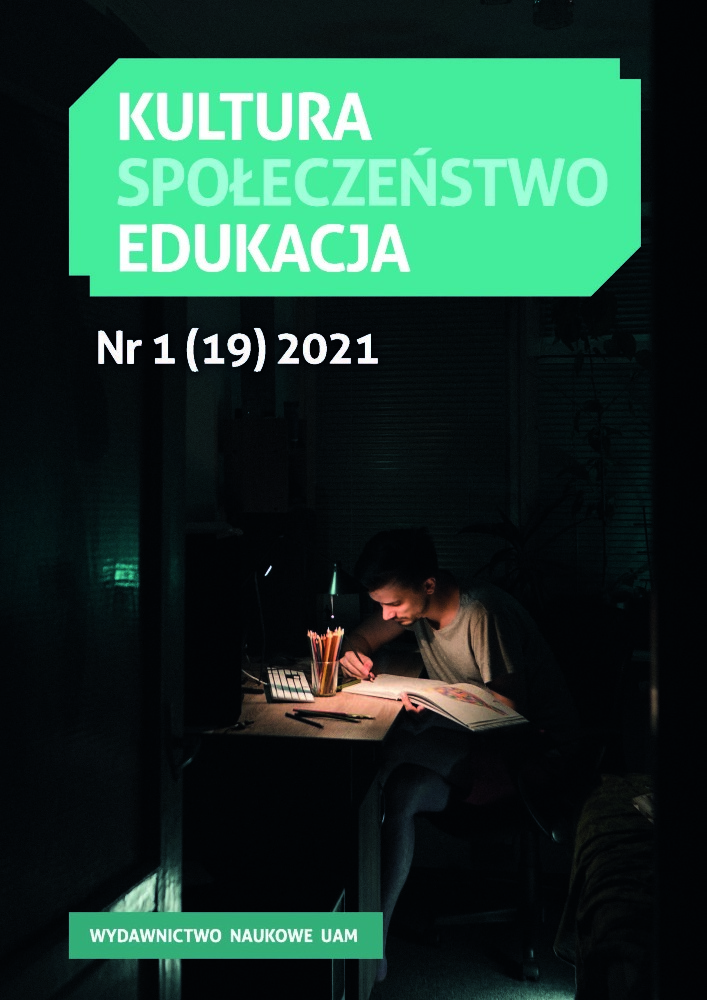Abstract
Motivation accompanies various human activities from an early age. The basic ones include fun, education and work. These activities are combined in different proportions and depend on the living environment and the interests of the individual. Care, upbringing, family environment and family atmosphere shape the child’s perceptions of the world. These factors also affect the individual in terms of making important decisions, which include undertaking education in a university. The human environment, objects, and the same places also imply various motives in creating human behaviour that translates into aspirations to achieve different life goals. The article is an attempt to present the impact of humans’ predispositions in their fields of interest, their self-assessment of intellectual possibilities, prospects for high -level earnings, employment opportunities in the country and abroad, as well as the curriculum covering subjects that were not difficult in high school and in which the pupil was good on the motives for choosing a major study of students of humanities at the University of Rzeszów and students of exact sciences from Rzeszów University of Technology.
References
Byrne M., Flood B. (2005), A Study of Accounting Students’ Motives, Expectations and Preparedness for Higher Education, Journal of Further and Higher Education, 2 (29).
Chodkowski Z. (2019a), Adaptacja człowieka do środowiska pracy, Rzeszów.
Chodkowski Z. (2019b), Autoocena własnych szans funkcjonowania zawodowego po ukończeniu studiów pedagogicznych, Szkoła – Zawód – Praca, nr 17, s. 201–216.
Chodkowski Z. (2019c), Plany zawodowe studentów Pedagogiki Uniwersytetu Rzeszowskiego w kontekście miejsca ich zamieszkania, Zarządzanie Publiczne, 2(46), s. 171–187.
Emigracja zarobkowa Polaków. Wyjeżdża coraz więcej wykształconych (2015), http://www.money.pl/gospodarka/wiadomosci/artykul/emigracja-zarobkowa-polakow-wyjezdza-co-raz,43,0,1864235.html, dostęp: 20.04.2020.
Farnicka M., Liberska H. (2014), Tworzenie środowiska sprzyjającego uczeniu się – analiza wybranych czynników, Teraźniejszość – Człowiek – Edukacja, nr 67(3).
Griffin R. (1997), Podstawy zarządzania organizacjami, Warszawa.
Kim Y., Mok S.Y., Seidel T. (2020), Parental Influences on Immigrant Students’ Achievement-Related
Motivation and Achievement: A Meta-Analysis, Educational Research Review, 30.
Kocowski T. (1993), Motywacja, [w:] W. Pomykało (red.), Encyklopedia pedagogiczna, Warszawa, s. 384–389.
Kozioł L. (2002), Motywacja w pracy. Determinanty ekonomiczno-organizacyjne, Warszawa–Kraków.
Mantica A., Moneva J., Malbas M. (2020), Family Status and Self-Motivation in Studies, International
Research in Education, vol. 8, no. 1.
Mietzel G. (2002), Psychologia kształcenia, Gdańsk.
Okoń W. (1998), Nowy słownik pedagogiczny, Warszawa.
Poleszczuk J. (2017), Decyzje edukacyjne maturzystów. Kontekst społeczny i indywidualne postawy młodzieży Białegostoku wobec wykształcenia wyższego, Pogranicze. Studia Społeczne, t. XXXI.
Reykowski J. (1992), Procesy emocjonalne. Motywacja. Osobowość, [w:] T. Tomaszewski (red.), Psychologia ogólna, Warszawa.
Sadowski R. (2019), Czynniki wpływające na wybór studiów. Raport, https://biznes.newseria.pl/biuro-prasowe/edukacja/czynniki-wplywajace-na,b1341706904, dostęp: 30.10.2020.
Stoner J.A.F., Freeman R.E., Gilbert D.R. (2011), Kierowanie, Warszawa.
Szewczuk W. (1997), Zdolności i uzdolnienia, [w:] W. Pomykało (red.), Encyklopedia pedagogiczna, Warszawa.
Tołwińska B. (2009), Motywacja dzieci do uczenia się (problemy dzieci, rola dorosłych), [w:] J. Izdebska i J. Szymanowska (red.), Wielowymiarowość przestrzeni życia współczesnego dziecka, Białystok.
Zimbardo P.G. (1999), Psychologia i życie, Warszawa.
Zimbardo P.G., Johnson R.L., McCann V. (2010), Psychologia. Kluczowe Koncepcje. Motywacja i uczenie się, Warszawa.
License
Copyright (c) 2021 Zbigniew Chodkowski

This work is licensed under a Creative Commons Attribution-NoDerivatives 4.0 International License.

